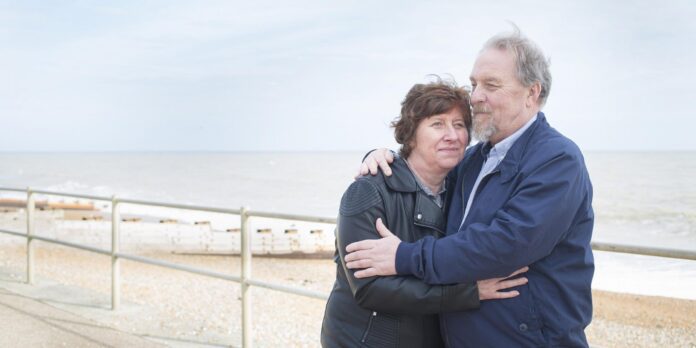When the idea to place a loved one in an ederly care facility is proposed, there can be opposition from the family members and the person in need of care themselves. In the true story given in the book,”Truth, Lies and Alzheimer’s: Its Secret Faces,” Beth and Ellie are whole heartedly against placing their aging mother in professional care. They didn’t want to feel like their mom would be “put out to pasture” – to live the rest of her life isolated and lonely. Many people feel this way, so how do we combat this feeling that we’re abandoning a family member?
Lisa Skinner, behavioral expert in the field of Alzheimer’s disease and related dementias, has helped numerous families navigate the challenges of having a loved one diagnosed with Alzheimer’s disease or other dementias over her 20-year career as a community counselor and regional director of senior care facilities. Her recently revised book, Truth, Lies and Alzheimer’s: Its Secret Faces explores true stories of families experiencing Alzheimer’s and provides evidence based solutions.
Below, Lisa answers several questions regarding how implementing professional care can feel like you’re abandoning your loved one with Alzheimer’s.
“Moving a loved-one into a memory-care residence can be emotionally difficult for family members, and they may even postpone making that move until a crisis occurs. I’ve seen this happen time and time again. Many adult children have said, “I could never put my mother in one of those homes!”, or “My dad will die if he has to go into one of those places, and I could not do that to him!” This is very common for adult children to feel this way, as they feel they are letting their parents down, and possibly even abandoning them. As people with Alzheimer’s disease continue to decline, they will no longer be able to care for themselves or remain safe without supervision; therefore, placing them in the care of trained professionals is usually the best option to provide them with the highest quality of life and care for this particular disease. It is also essential to offer them a structured environment with a variety of activities to keep them active and stimulated, and engaged, along with a proper diet and nutrition. Remember, you are not responsible for your loved one’s illness or their need for extensive care. Visit often if you can, and enjoy the special moments that you create together with your loved one which will ultimately strengthen your relationship and build a treasure of beautiful memories,” says Lisa Skinner.
How might my loved one with Alzheimer’s feel abandoned being placed in a professional care facility?
“It takes time to transition to a new living environment. Given time, most people living with Alzheimer’s disease thrive in their new environment. In the first two to four weeks, visit otten so your loved one sees you regularly and realizes they have not been abandoned. More frequent visits are more important than longer visits. Attend events with them and sit with them during activities. Share some meals together. Furnish and decorate their room with familiar items so they will quickly adapt to their new surroundings which will help them make the connection that this is home much more quickly. Bring special treats that they enjoy like their favorites cookies or candy. Most importantly, reassure your loved one that he or she is safe, loved, and cared for.”
How implementing professional care can help strengthen your relationship with your loved one with Alzheimer’s
“Placing your loved one in the care of professionals will completely change your role in the way that you are involved in their life. Doing so will remove the anxiety and stress of being the caregiver and having to tend to their every need, which can be extremely demanding. Your job now will be to spend quality time with your loved one and to create special moments of love and joy between you. You will be able to focus exclusively on spending valuable time with your loved one without the distractions of all the challenges that surface when you are in a caregiver role. Taking off the caregiver hat will allow for a much more meaningful relationship with your loved-one. One that you will treasure.”

| [donate]
| Help keep news FREE for our readersSupporting your local community newspaper/online news outlet is crucial now more than ever. If you believe in independent journalism,then consider making a valuable contribution by making a one-time or monthly donation. We operate in rural areas where providing unbiased news can be challenging. |

















